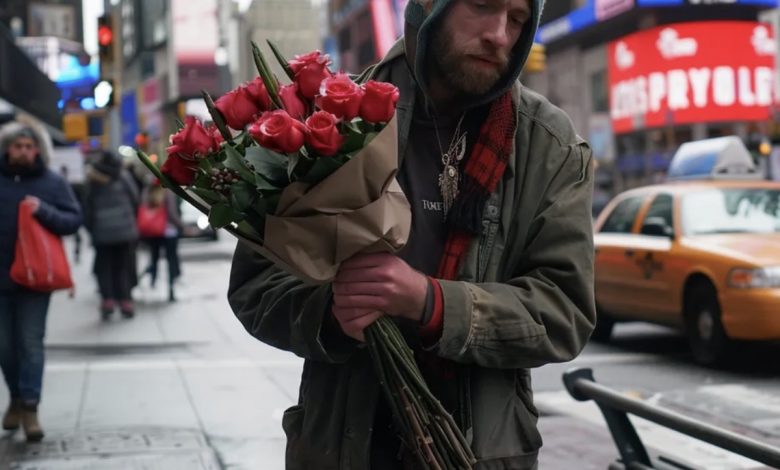
My father and I were standing beside his brand-new car, admiring the sleek black paint and shiny chrome details. I was already thinking about when I could take it out for a spin.
Suddenly, a homeless man shuffled over. His ragged appearance seemed out of place next to us as he stopped a few feet away.
“Excuse me, sir. I don’t mean to bother you, but… if you have any work, I’d be glad to earn a few dollars. I can wash the car or… clean your shoes.”
I looked at him, repulsed by his appearance.
“No, thanks,” I snapped. “I don’t want you touching my stuff with those dirty hands.”
The man didn’t respond. He didn’t argue or make a scene. He just gave a small nod and walked away, disappearing into the city crowd like he was used to hearing that kind of response.
I felt a strange satisfaction as if I’d defended my world. My father had been quiet the entire time. Later that evening, though, he called me into his study, his face unusually serious.
“Declan,” he started, “I’ve watched you live your life without any understanding of what’s really important.”
I frowned, not knowing where this was going.
He continued, “That man today… you treated him like he was less than human. That attitude is going to destroy you. You think money makes you better, but it’s the one thing that can ruin you.”
I tried to interrupt, but he raised his hand.
“From now on, you’re not getting another dollar from me until you learn to be a decent person. No money, no inheritance, nothing.”
“What do you mean, nothing?”
“I mean, you’re going to earn everything on your own. I’m giving you these clothes from the second-hand store, and that’s it. You need to learn the value of money, Declan.”
That wasn’t just talk. I found my accounts frozen. No more luxury, no more easy life. I was left with nothing and no way out.
The first days on the street were nothing short of humiliating. One minute, I was surrounded by luxury, and the next, I was searching for a spot to escape the cold.
The reality of it all hit me harder with each passing day. I always thought it could never happen to me. Yet there I was, shivering under a bridge, wishing for even a fraction of what I once had.
My mind kept drifting back to Layla. I had promised her a night out somewhere elegant and expensive, a place worthy of her beauty.
But now, what will she think if she sees me like this?
I wore ragged clothes, had unwashed hair, and had no money in my pockets. The thought of showing up in this state was unbearable. On the second day under the bridge, I heard a voice.
“Hey, are you alright?”
A young woman was standing in front of me.
“You look like you could use some help,” she said, offering me a hand.
I hesitated for a second, ashamed of what I had become. But I had no choice.
“I’m a volunteer at a shelter nearby,” she said. “It’s not fancy, but it’s warm, and we can get you cleaned up and something to eat.”
She led me down a few streets until we reached a modest house. The furniture was worn, but it didn’t matter. After spending nights under the open sky, it felt like a palace.
Mia motioned me to sit.
“Here, let me get you something to drink,” she said as she handed me a cup of hot tea. “This place isn’t much, but we try to make it comfortable for everyone who comes through.”
I looked around. “Why are you helping me?”
“It’s my job to help. But more than that, I know life can turn upside down in the blink of an eye. I’ve seen people from all walks of life come through here. You’re not alone in this.”
Her words hit me harder than I expected. I nodded, grateful for the first bit of kindness I had felt in days.
Later, Mia brought me clean clothes and showed me how to clean up.
“I know things seem bad now,” she said as I combed my hair in the mirror, “but you can get through this.”
Her kindness gave me hope.
The next day, Mia helped me prepare for a job interview at a local restaurant.
“It’s not glamorous, but it’s a start.”
I knew she was right. I had to start somewhere. The interview was short, and I began my duties immediately.
I started doing the dirtiest work: taking out the trash, mopping floors, washing dishes. It was tough, but I kept reminding myself that I had to earn enough to stay at a motel and buy decent clothes for the date.
Each day was hard, but with Mia’s support, I started to believe I could face whatever came next.
A week of hard work passed, and it felt like the longest week of my life. Every day at the restaurant was a struggle. My hands, once soft and unblemished, were now calloused from mopping floors and scrubbing grease off dirty dishes.
It seemed like everything was working against me. Plates always slipped from my grasp, buckets of water splashed over my shoes. Each time something went wrong, the manager was quick to pounce.
“Declan, can’t you do anything right?” he barked one afternoon as I fumbled with a tray of dirty dishes. “This isn’t a playground. You mess up again, and you’re out!”
I could feel the stares of the other employees burning into my back, but I just nodded, biting my tongue. My pride had already taken enough hits.
Outside, as I walked home from work, I heard kids running down the street, laughing loudly.
“Look at him!” one of them shouted, pointing at me. “He can’t even walk straight!”
They giggled as I stumbled, my feet dragging from exhaustion.
When I’d finally make it back to the shelter, I’d go straight to the shower. Every night, I collapsed onto the bed, too tired to even think, only to wake up and do it all over again the next day.
By the end of the week, payday came, and I eagerly opened the small envelope, hoping it would be enough to keep me going. But inside were only a few crumpled bills.
“That’s it?” I muttered, stunned.
The restaurant owner looked at me coldly.
“You’re homeless. And you’re an awful worker. Be glad I gave you anything at all.”
At that moment, I saw myself in the homeless man I had once insulted. I finally understood what it felt like to be treated as if you didn’t matter.
Despite everything I had been through, I decided to go on that long-promised date with Layla. I hoped she would see me for more than the wealth and status I used to flaunt.
I arrived at the café, my palms sweating. Layla walked in, her high heels clicking sharply against the floor. She was just as stunning as ever. Her eyes scanned me from head to toe.
“Declan,” she sighed, “I thought you’d at least show up in a decent suit. What happened to the car? I expected dinner at that fancy place downtown, not… this.”
She gestured around at the modest café, her voice dripping with frustration.
“I’m sorry, Layla. Things have changed for me. I don’t have the money I used to, but I thought maybe we could still…”
She cut me off, shaking her head.
“I’m not here to help you rebuild yourself, Declan. If you can’t offer me the life I deserve, then what’s the point?”
Her words were like a slap in the face, but they were also the truth I needed to hear. Layla wasn’t the woman I thought she was. She was just a reflection of my old shallow life built on appearances and material things.
After she left, I sat there for a few minutes, processing it all. In my old world, I would have been crushed, but now, I no longer needed to chase after someone who only valued me for money.
With the little money I had earned, I bought a box of pastries from a local bakery. As I walked through the park, I spotted the homeless man I had insulted weeks ago. I handed him the box.
“I’m sorry,” I said. “For how I treated you before. You didn’t deserve that.”
“We all have bad days,” he said simply, accepting the pastries.
His words lifted a bit of a weight off my shoulders. Then, with the last bit of cash I had, I bought a big bouquet of roses and headed to the shelter.
Mia was there, as always, helping others with a warm smile on her face. I handed her the flowers.
“Thank you, Mia. For everything. I don’t know where I’d be without your help. I was wondering… would you like to go for coffee with me sometime?”
Mia’s eyes lit up. “I’d love that, Declan.”
At that moment, I realized something I hadn’t understood before. Life isn’t about money or status, or how you look to others. It’s about the people who lift you up, who see you for who you really are, and help you become better.
My father appeared later that evening and admitted he had been watching me all along.
“I’m proud of you, son,” he said quietly. “Let’s go home.”
And for the first time, I felt like I had earned it.
Tell us what you think about this story, and share it with your friends. It might inspire them and brighten their day.
Adriana Lima Stuns with Her ‘Healthier’ Body on the Runway
The Brazilian supermodel made a comeback on the runway at the age of 43, showing off her “slim” body transformation for the 2024 Victoria’s Secret Fashion Show.
Adriana Lima’s appearance at the Victoria’s Secret Fashion Show on October 15, 2024, was one of the best moments of the night. After retiring in 2018, after nearly 20 years with the lingerie brand, and having her third child in 2022, she amazed the crowd with her new look, which fans quickly noticed and praised.

Lima first shared her retirement in 2018 at the age of 37. In an Instagram post, which she has since deleted, she reflected on her long time with the brand. “Dear Victoria, thank you for showing me the world, sharing your secrets, and most importantly not just giving me wings but teaching me to fly,” she wrote.

When talking about her last walk, Lima told People, “This has been my 18th fashion show, and I am still as excited as I was from the first day. I think this year is going to be the highlight of my career.”
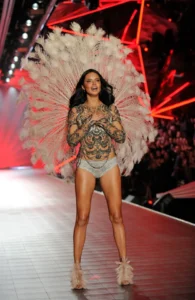
After leaving modeling, she was only seen at some events and on social media. In a TikTok video from February 2022, Lima shared that she was pregnant with her third child, her first with partner Andre Lemmers.

By April, the couple released a gender reveal video, announcing that a boy would join Lima’s daughters from her previous marriage, Valentina and Sienna. Her son, Cyan, was born in August 2022.
During her pregnancy, the retired supermodel looked amazing in stylish maternity outfits at important events, like the 75th Cannes Film Festival in May 2022. Wearing a mustard gown from Nicolas Jebran, she proudly showed off her baby bump on the red carpet, and while she looked great, it was different from her usual slimmer figure.
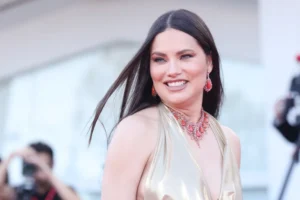
Fast forward to 2023, Lima attended the Venice International Film Festival in a Pinko gown with a plunging neckline and gold accents. At this event, her fuller face and body were still noticeable.

A few months later, the supermodel went to the Mon Cheri Barbara Tag event in Munich, Germany, in December 2023. She wore a form-fitting gray gown by Donna Karan and looked like she was losing her previous weight.
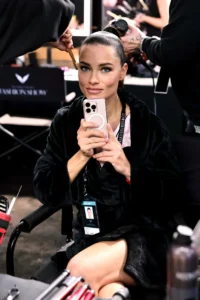
However, her October 2024 runway appearance showed her full transformation. During the 2024 Victoria’s Secret Fashion Show in Brooklyn, Lima wowed the crowd not just with her outfits but also with her youthful appearance. A backstage photo captured her glowing skin and tight facial features.
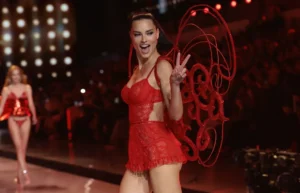
Once ready, Lima hit the runway wearing a checker-striped outfit with a black bra and high-waisted pants, topped with a long-sleeved cut-out top for her first look. Her grunge-style angel wings added a cool touch to the outfit.
For her second appearance, she wore a red lace nightie with sparkling wings that showcased her renewed energy. This moment reminded everyone of her younger days as an angel for the brand, and fans quickly expressed their admiration for her physical change on social media.
One fan said, “She’s lost so much weight. She’s back .” Another wrote, “SHE LOOKS GREAT HER SLIM BODY IS BACK. GREAT JOB. I LIKE THIS OUTFIT TOO.”
Kiya Cole, the mother of actress Skai Jackson, added, “She worked hard in the gym this past year! I was a witness. No quick fix for her!” Another commenter expressed, “She is back with a vengeance, love her.”
Fans were also happy to see the show featuring a variety of healthier bodies, like Lima’s. One commented, “These bodies look healthier, and I like that, in different sizes but healthy, good for VS.”
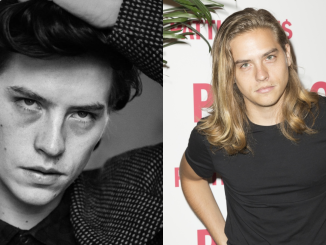
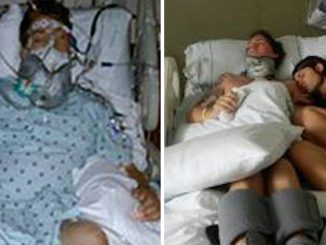
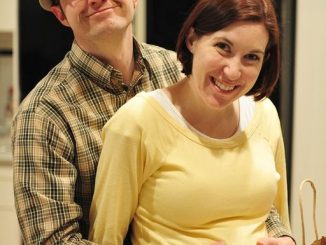
Leave a Reply